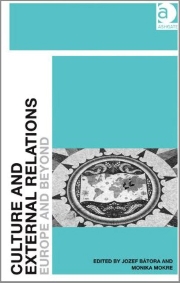 Political entities use culture to support their soft power potential, to generate goodwill, to frame the international agenda in particular ways, to erect and re-enact boundaries and/or to create societal linkages across them. While the importance of culture has been on the rise in the realm of foreign affairs, its role in this field remains one of the most under-studied aspects of state policy.
Political entities use culture to support their soft power potential, to generate goodwill, to frame the international agenda in particular ways, to erect and re-enact boundaries and/or to create societal linkages across them. While the importance of culture has been on the rise in the realm of foreign affairs, its role in this field remains one of the most under-studied aspects of state policy.
In this book, a range of international experts take an unprecedented look at what role external cultural policy plays in foreign affairs. The book features historical case studies ranging from European 'civilizing' engagement with nineteenth-century China to uses of Abstract Expressionism as an instrument in the ideological struggles of the Cold War. Conceptual issues ranging from the dynamics of the 'Anglosphere' to the effects of what some term the 'culture of liberal democracy' are addressed. Current trends in the uses of culture in the EU's external relations both from the perspective of institutional developments, policies and practices in the EU and from the perspective of countries engaged by the EU's cultural policies are also discussed in greater detail.
The volume contains contributions by Erik Ringmar, Iver B. Neumann, Srdjan Vucetic, Monika Mokre, Jozef Bátora, Bahar Rumelili and Didem Cakmakli, Manfred J. Holler and Barbara Klose-Ullmann, Milena Dragicevic Šešic, and Emil Brix.
Full info:
Culture and External Relations: Europe and Beyond
Jozef Bátora and Monika Mokre (eds), Ashgate, 2011